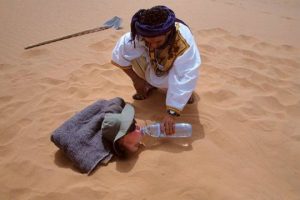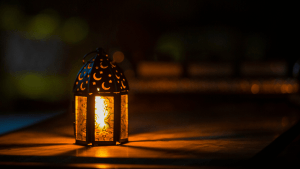Here is all you need to know about Ramadan:

Ramadan and fasting is a holy month for Muslims around the world, during which they observe daily fasting from dawn until sunset. It is a time of spiritual reflection, self-discipline, and increased devotion to God.
The timing of Ramadan is based on the Islamic lunar calendar, and it typically falls during the ninth month of the calendar year. The start of Ramadan is announced by the sighting of the new moon, and it lasts for 29 or 30 days depending on the lunar cycle.
During Ramadan, Muslims abstain from food, drink, and other physical needs from sunrise to sunset. The fast is broken each day with a meal called iftar, often shared with family and friends. The pre-dawn meal is called suhoor, which is taken before the start of the fast.
Fasting is not only about refraining from food and drink, but it also involves controlling one’s thoughts and behavior, including avoiding negative speech and actions. Muslims are encouraged to increase their prayers and to read and reflect on the Quran, the holy book of Islam.
Ramadan is also a time of giving and charity, with Muslims encouraged to give to those in need. Zakat, one of the five pillars of Islam, requires Muslims to give a portion of their wealth to those less fortunate.
The end of Ramadan is marked by the celebration of Eid al-Fitr, which is a time of family gatherings, gift-giving, and feasting. Muslims often wear new clothes and visit friends and family to mark the end of the month of fasting.
Ramadan is an important and significant month for Muslims around the world. It provides an opportunity for self-reflection and spiritual growth, and it is a time to focus on the teachings of Islam and strengthen one’s relationship with God.
This month holds significant spiritual and religious importance for Muslims and marks a time of reflection, self-discipline, and renewal of faith.
Fasting is one of the Five Pillars of Islam and is mandatory for all adult Muslims who are physically and mentally capable of observing it. During Ramadan, Muslims abstain from eating, drinking, smoking, and engaging in sexual activity from dawn until sunset. The fast is broken with an evening meal called iftar, often shared with family and friends.
In addition to fasting, Muslims also engage in increased acts of worship during Ramadan. This includes recitation of the Quran, the holy book of Islam, and additional prayers, such as Taraweeh, which are offered in the congregation in the evenings.
Ramadan is also a time for increased acts of charity and giving. Muslims are encouraged to be generous and help those in need, especially during this month. This can include donating to charity, volunteering at a local organization, or simply offering a helping hand to someone in need.
The end of Ramadan is marked by the holiday of Eid al-Fitr, which is celebrated with special prayers, a communal meal, and gifts. It is a time for Muslims to come together in celebration and to express gratitude for the blessings and spiritual growth they have experienced during the month of Ramadan.
Overall, Ramadan is a month of heightened spiritual devotion, self-discipline, and acts of kindness for Muslims. It provides an opportunity for individuals to reflect on their relationship with God and to strengthen their faith through increased acts of worship and charity.




